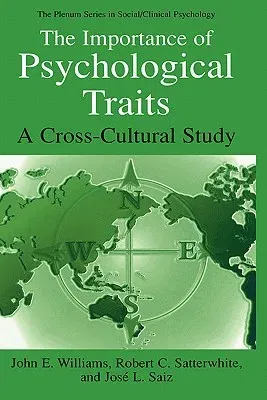John E Williams
(Author)The Importance of Psychological Traits: A Cross-Cultural Study (2002)Hardcover - 2002, 31 October 1998

Qty
1
Turbo
Ships in 2 - 3 days
In Stock
Free Delivery
Cash on Delivery
15 Days
Free Returns
Secure Checkout

Part of Series
The Springer Social Clinical Psychology
Part of Series
Plenum Series in Social/Clinical Psychology
Part of Series
Prevention in Practice Library (Hardcover)
Part of Series
Springer Series in Social/Clinical Psychology
Part of Series
Plenum Series in Social/Clinical Psychology Plenum Series in
Part of Series
Springer Series in Social Clinical Psychology
Print Length
193 pages
Language
English
Publisher
Springer
Date Published
31 Oct 1998
ISBN-10
0306458896
ISBN-13
9780306458897
Description
Product Details
Book Edition:
2002
Book Format:
Hardcover
Country of Origin:
US
Date Published:
31 October 1998
Dimensions:
23.39 x
15.6 x
1.27 cm
ISBN-10:
0306458896
ISBN-13:
9780306458897
Language:
English
Location:
New York, NY
Pages:
193
Publisher:
Series:
Weight:
476.27 gm